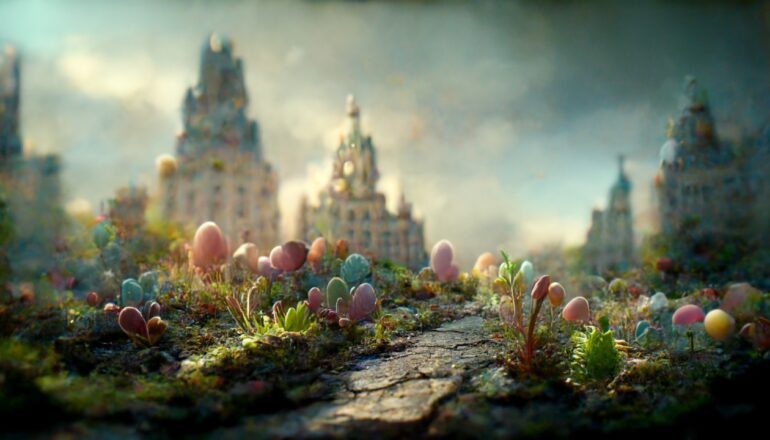TL;DR:
- The rise of AI image generators is affecting the gaming art industry, especially in China.
- AI generators are faster and cheaper than human artists, leading to a shift in the industry and a reduction in earning potential for illustrators.
- AI has far-reaching implications for the workforce, with Goldman Sachs estimating that AI could automate up to 300 million jobs.
- Freelance illustrators like Amber Yu are being forced to adapt, but the situation is even more challenging for those in the Chinese video game market.
- The shift towards AI in the gaming industry has allowed companies to cut costs, but it comes at a high cost to human artists.
- This serves as a reminder of the far-reaching impact of AI on the workforce and the need for professionals to be prepared to adapt and evolve.
Main AI News:
The Impact of AI on the Gaming Art Industry
The rise of AI image generators is having a profound effect on the gaming art industry, particularly in China, according to the Rest of the World. Illustrator Amber Yu spoke to the publication about the challenges she faces in an industry that is rapidly changing. You previously earned anywhere between $430 to $1,000 for her time-intensive work creating video game posters.
However, the advent of AI generators that are faster and cheaper than human artists has led to a shift in the industry, with Yu now being primarily recruited for smaller tasks, such as editing and fixing AI-generated drawings. This shift has resulted in a significant reduction in her earning potential, with her rates now only a fraction of what they once were. This trend is echoed by other game illustrators, who are grappling with the rapid pace of AI development.
Xu Yingying, an illustrator at an independent game art studio in Chongqing, China, reported that her studio has laid off 15 specialized illustrators this year due to the rise of AI image generators. “Two people could potentially do the work that used to be done by ten,” she said.
The Future of Work: The Rise of AI in the Gaming Industry
The increasing capabilities of AI have far-reaching implications for the workforce, and the gaming industry is no exception. Last month, Goldman Sachs released a memo suggesting that AI could automate up to 300 million jobs. This trend is especially evident in the field of AI-generated images, where programs like Midjourney and Stable Diffusion are rapidly improving their ability to create convincing artwork.
The impact of AI on the industry is acutely felt by freelance illustrators like Amber Yu, who is forced to adapt to the changing landscape despite her reservations. “If I’m a top-notch artist, I might be able to boycott [the companies],” Yu told Rest of World. “But I have to eat.” She goes on to admit that she is even planning to train AI with her own artwork.
The situation is even more challenging for those in the Chinese videogame market, which has been hit hard in recent years by a government licensing freeze that put thousands of gaming companies out of business and caused a widespread job crisis. While some game developers are reluctant to completely replace human artists with AI, the technology has already allowed them to cut costs in the wake of the licensing freeze.
However, this shift towards AI comes at a high cost, with one anonymous videogame artist telling the Rest of the World, “Our way of making a living is suddenly destroyed.” This serves as a sobering reminder of the far-reaching impact of AI on the workforce and the need for professionals to be prepared to adapt and evolve in an ever-changing landscape.
Conlcusion:
The rise of AI image generators has had a significant impact on the gaming art industry, particularly in China. AI generators are faster and cheaper than human artists, leading to a shift in the industry and a reduction in earning potential for illustrators. Goldman Sachs estimates that AI could automate up to 300 million jobs, with the gaming industry being no exception. Freelance illustrators are being forced to adapt, while the situation is even more challenging for those in the Chinese videogame market.
While AI has allowed companies to cut costs, it comes at a high cost to human artists. This serves as a reminder of the far-reaching impact of AI on the workforce and the need for professionals to be prepared to adapt and evolve.

